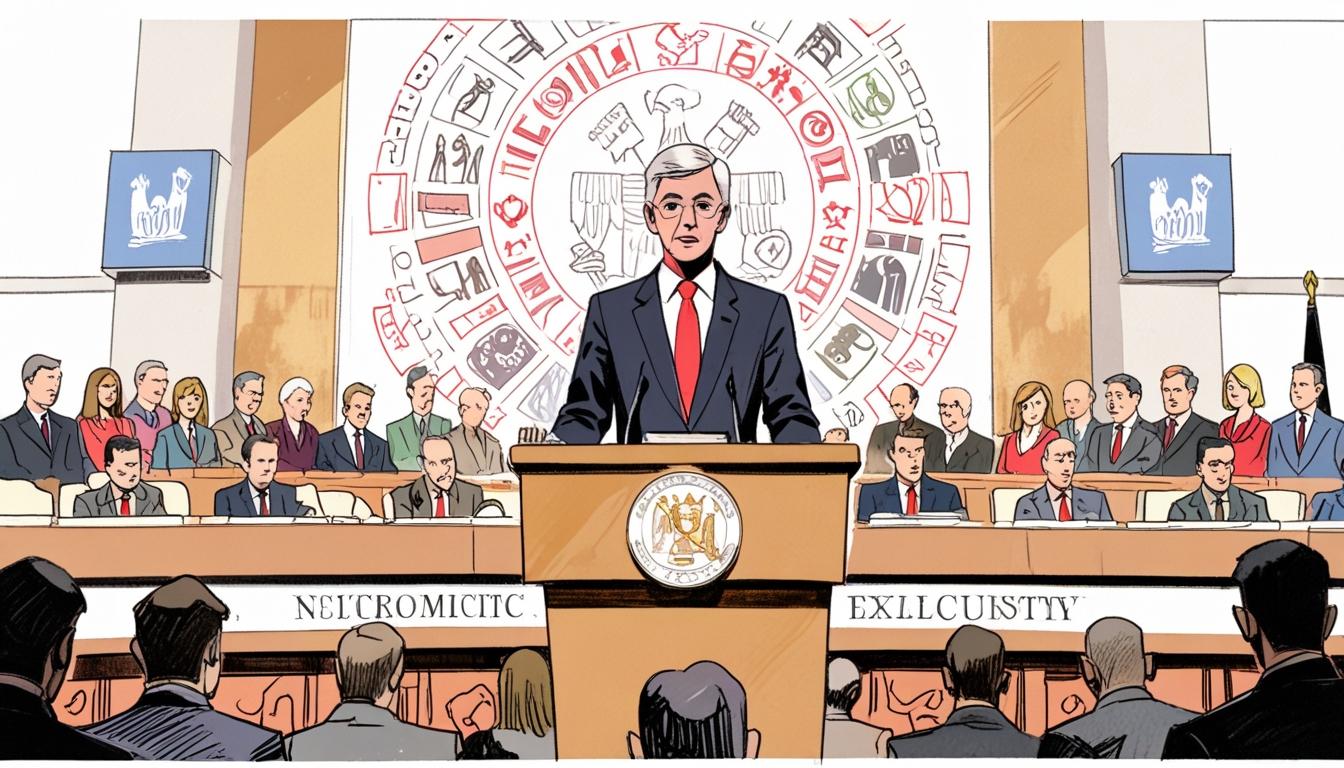Significant political shifts have emerged in the wake of last week’s English local elections, where a right-wing party made notable gains. With control over ten councils and the largest representation in four others, this party is poised to push a radical agenda for local governance.
The party leader, once known for his close ties to Donald Trump, seems less inclined to adopt the former president’s controversial approach, even as prominent figures have criticized his leadership. Nevertheless, the party continues to advocate for aggressive reform strategies that mirror calls for reduced public service costs and staffing.
The proposal for a "Department of Government Efficiency" aims to streamline operations within councils, focusing on slashing spending. The leader's suggestion that staff involved in climate change, equality, and diversity roles seek alternate employment signals a drastic overhaul of local governance philosophies.
Newly elected councillor Darren Grimes, a former GB News presenter, has echoed these convictions, advocating for substantial financial audits aimed at dismantling what he refers to as “net-zero pet projects” and curtailing the costs associated with diversity initiatives. Previous remarks labeling local government pension schemes as “Ponzi schemes” underscore the party's combative position on public expenditure.
In the Greater Lincolnshire area, the mayor is promoting a policy to trim council staffing levels by ten per cent and has controversially proposed housing asylum seekers in tents instead of traditional accommodation, a move that could drastically reshape local welfare policies.
The chair of the party also expressed grave concerns during a recent Sky News interview, alleging that UK schoolchildren are being "indoctrinated to hate their country." He pointed to a campaign against the legacy of Sir Winston Churchill, reflecting broader frustrations among certain societal groups regarding historical representation in education. He emphasized the necessity of a “remoralisation” of the curriculum to counteract what he perceives as a character assassination of iconic figures.
This discussion brings to light ongoing debates about the portrayal of history in education, particularly elements of Churchill’s life that are often glossed over, including his controversial actions during the Bengal famine.
As these developments unfold, the potential consequences for local governance, welfare policies, and educational frameworks could be substantial, significantly shaping the UK’s political landscape in the years to come. With public discourse increasingly focused on right-wing perspectives, the response from various community sectors will be critical as this party seeks to assert its influence.
Source: Noah Wire Services
